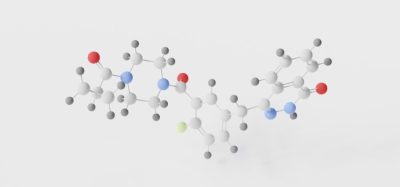MHRA authorises new treatment for rare lung cancer
Posted: 6 November 2023 | Catherine Eckford (European Pharmaceutical Review) | No comments yet
A “potential best-in-class treatment” for adults with KRASG12C-mutated non-small cell lung cancer (NSCLC) has been authorised in the UK.


A new medicine to treat adults with non-small cell lung cancer (NSCLC) with a rare mutation called KRASG12C has been authorised by the UK Medicines and Healthcare products Regulatory Agency (MHRA).
According to the MHRA, Mirati Therapeutics B.V.’s Krazati® (adagrasib) can be used in this indication in individuals who have an advanced form of the disease, or it has spread to other parts of the body. In addition to being indicated in those with progressive disease, Mirati Therapeutics shared that the treatment is also authorised for patients with, or intolerance to, platinum-based chemotherapy and/or anti-PD-1/PD-L1 immunotherapy.
New cancer therapy for KRASG12C-mutated NSCLC
In a statement on its decision, the MHRA highlighted that the KRASG12C protein causes the cancer cells to grow out of control.
As a highly selective and potent oral small-molecule inhibitor of KRASG12C, Mirati Therapeutics’ adagrasib is optimised to sustain target inhibition. This could be important to treat KRASG12C-mutated cancers, as the KRASG12C protein regenerates every 24−48 hours, the company stated, elucidating research published in 2020 in the journal Cancer Discovery. Mirati Therapeutics also shared in a press release that adagrasib has shown clinically to penetrate the central nervous system.
Adagrasib is available for eligible NSCLC patients as a 200mg oral tablet. It provides a “potential best-in-class treatment to qualified patients,” according to Dr Alan Sandler, Chief Medical Officer of Mirati Therapeutics, Inc.
Dr Shobhit Baijal, Consultant Medical Oncologist of The University Hospital Birmingham, UK highlighted statistics from the aforementioned 2020 Cancer Discovery paper and a 2022 paper from Clinical Cancer Research: “Fourteen percent of people living with NSCLC harbour the KRASG12C mutation yet there are limited targeted treatment options for patients with this devastating disease.”
Therefore, “KRAZATI offers a compelling therapeutic option for patients with previously treated locally advanced NSCLC with a KRASG12C mutation. MHRA’s authorisation is a significant step towards improving the options available for patients and clinicians in Great Britain,” Dr Sandler continued.
Related topics
Drug Development, Drug Markets, Drug Safety, Industry Insight, Regulation & Legislation, Research & Development (R&D), Therapeutics
Related organisations
Medicine and Healthcare products Regulatory Agency (MHRA), Mirati Therapeutics
Related drugs
Related people
Related diseases & conditions
Lung cancer, metastatic non-small lung cancer (NSCLC), non-small cell lung cancer (NSCLC)









